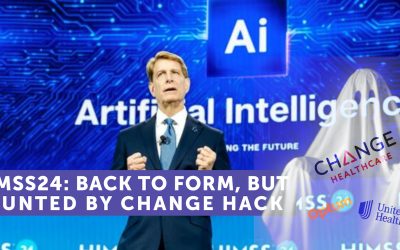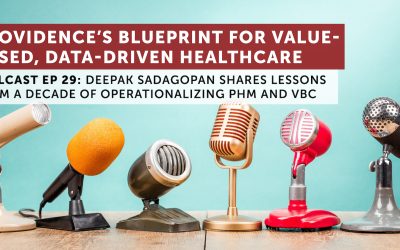Had the opportunity last week to get an update from Will Crawford and Ken Mandl of the Children’s Hospital Informatics Program (CHIP), a joint collaboration of Harvard Medical and MIT. The objective was to learn more about the recent agreement between CHIP and Dossia, whereby Dossia will adopt Indivo as the Personal Health Record (PHR) platform, or what CHIP refers to as PCHR for Personally Controlled Health Record system.
Indivo has been one of those academic exercises where some interesting technology (a completely Open Source PHR) has been developed, tested and refined over the years (13 years and counting). The overall purpose has not been to create a product for the market per se, but to develop a platform that can be used to better understand the possible role of a PHR system in healthcare to improve outcomes. Over the years CHIP has addressed a whole host of platform development issues for Indivo from usability to interoperability, privacy, security and finally, consumer and physician adoption. But this has all been very much in an academic setting. Consequently, little real world testing has been done to date on Indivo platform and by real world I mean large-scale deployments and use. Note, they have done limited deployments at both Children’s Hospital, MA-SHARE, a regional RHIO, at MIT where they have a couple of hundred subscribers and in Canada where there are several hundred subscribers as well. They are also currently rolling it out at several other locations.
That is all about to change.
On Sept. 17th, Dossia announced that they had chosen Indivo as the platform for the 5 million plus employees, retirees and dependents, that Dossia’s employers represent. That is a massive leap forward and a huge vote of confidence for the folks at CHIP and their Indivo PHR. But a lot of questions have been raised as to how independent CHIP and Indivo will remain now that they have such a large client and even more importantly, there is a ton of cynicism regarding what the true motivations are of the employers that are sponsoring Dossia.
Will and Ken wanted to set the record straight. Following are a few highlights from our conversation (Note, these are NOT verbatim, but based on my quick notes):
Ques: How independent will Indivo Health remain? Does the agreement with Dossia put any restrictions on Indivo?
Ans: CHIP remains an independent non-profit entity directly responsible for Indivo. The Indivo platform will remain an Open Source platform and adhere to the conditions of the open source community for enhancements, distribution and use. There are no restrictions on CHIP’s ability to establish future partnerships/relationships with others. In fact CHIP maintains complete autonomy and can exit this agreement at any point in time.
One area that Dossia did insist on was for CHIP to establish a stronger governance model for developing and enhancing the Indivo PHR. This governance model will formalize the process by which enhancements are chosen for development, acceptance, QA/QC testing protocols and how such enhancements will be formally supported upon their release. (Ed. This makes good sense for as an academic exercise, this issue was not high on the priority list. Dossia’s insistence on this point will lead to a better product for the broader market.)
Ques: Who will actually operate and maintain the Dossia/Indivo PHR once it is live? When is go live date?
Ans: CHIP will be directly responsible for day-to-day operation of the Dossia PHR. They will be contracting with an outside hosting service to physically host the PHR. Data transmitted to and from the hosting service is completely encrypted, end to end, to insure security and privacy of employee records. They will roll-out Indivo to a small group of early adopters within the Dossia community later this year.
Ques: Will Dossia employers have access to employee data?
Ans: Employers will have absolutely no access whatsoever to employee data that is resident on the Indivo platform. Important to point out that according to Ken and Will, the employers insisted on this as well. (Ed. Enlightened employers are more concerned with helping their employees stay healthy, which provides a much greater contribution to their bottom line, than trying to weed-out those that may have health issues by digging into their records.)
Ques: What is the biggest challenge going forward?
Ans: This is just hard to do. It requires an in-depth examination of existing systems, addressing interoperability, developing mechanisms that autonomously and automatically update records (they’re experimenting with bots), enhancing the user experience and most importantly insuring privacy and security of the platform. A core operating belief at CHIP is to focus on the end user, the consumer/patient. This is reflected in what they prefer to call their PHR, a PCHR for Personally Controlled Health Record system with an emphasis on personal control. CHIP believes that if they can make Indivo work for the consumer, it will have a corresponding and positive impact on other healthcare stakeholders, chief among them, physicians.
Having worked in academia and in industry I have seen my fair share of such partnerships disintegrate due to diametrically opposing views on what the priorities should be. Academics typically want to pursue their research and get published (trust me, you don’t get published and receive the accolades of your peers by commercializing a product), while companies such as those associated with Dossia are interested in the product and not another paper for JAMIA.
But overcoming such differences will be relatively trivial compared to getting all stakeholders (providers, employees and payers) on-board the Dossia initiative adopting and using Indivo to produce better outcomes and health for the consortium’s massive employee base. But Dossia does represent massive buying power in the healthcare market and can use that to their advantage.
CHIP and Dossia are really breaking new ground here as this will be the first large scale deployment in the US of a multi-data sourced PHR serving such a large community nationwide. If they can move beyond some fundamental motivational differences there is a lot of potential here to really move the ball forward on consumer adoption and use of PHRs. But no doubt about it, we still have quite a ways to go and it will be hard work. Closely tracking this initiative will offer some important insights into the future of this evolving technology and the broader theme of consumer directed healthcare. Stay tuned.




0 Comments
Trackbacks/Pingbacks